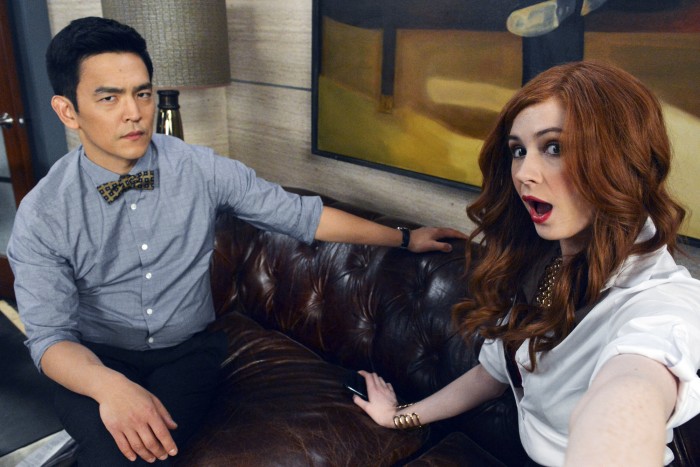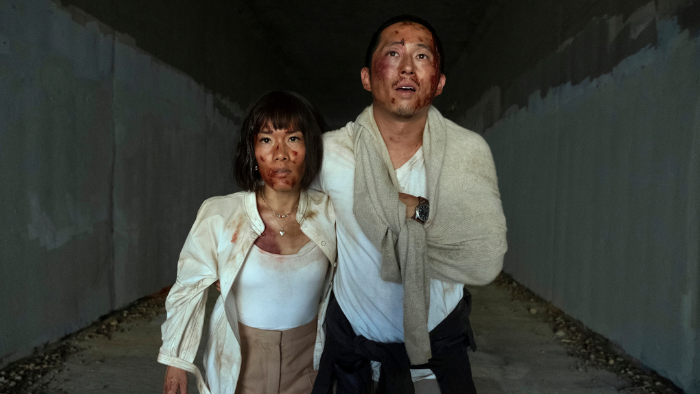by GRACE KANG
#thestruggle has been the unofficial hashtag slogan of my post-grad life since June 2013 when my peers and I were herded by the thousands through commencement. As we haphazardly tossed our caps and tassels into the air, I shouted, “Finally, the great adventure of financial debt and accrued interest can begin!” Although dozens of those within earshot of me laughed, it was in commiseration rather than mirth. The reality is, student loans and a scrubland job market confront 99 percent of the Millennial generation. But we knew that was coming the moment we posed bleary-eyed for our student ID pictures as incoming freshman at UC-Riverside four years earlier.
Although the media loves to depict millennials as unmotivated leeches with Internet access, we are out there and struggling (I mean if you want some real bloodsuckers, check out richkidsofinstagram.tumblr.com). On the other hand, the star of ABC’s soon-to-be-axed sitcom “Selfie,” millennial Eliza Dooley, is living the #instagood life, with her own place in SoCal, a steady income and a no-holds-barred social life. It’s a glamorous far cry from #thestruggle of many twenty-somethings who find themselves in a bizarre alternate “Hunger Games”-style universe in which the arena is a job market mainly consisting of part-time, minimum-wage or entry-level positions that require anywhere from two to five years of experience. For recent postgrad applicants, coming armed with an internship on your resume is a lot like wielding a pot lid to fight the other tributes.
Eliza Dooley (played by the Scottish actress Karen Gillan) seems a lot more like a mashup of the Plastics and Reese Witherspoon’s character in Legally Blonde minus the conniving cutthroat attitude of the former and Harvard-educated intellect of the latter. Despite her 263,000-plus social media contacts, Eliza has no idea how to navigate interpersonal waters or go two minutes without checking her smartphone, which she uses to count calories, measure her blood alcohol levels and apparently validate her existence. Her character makes me think, ‘So this is how the Gen X minds behind “Selfie” view my generation,’ the way John Cho’s uptight, workaholic character Henry Higgs views Eliza—as attention-hungry, empty headed social media junkies in need of a rebrand.
Critics have slammed the sitcom’s fundamental misunderstanding of the relationship between millennials and the social media sphere, much of which was conceived and put into our hands by Generation X. A string of secondary characters on “Selfie” appears to be partly or almost entirely absent from these platforms (e.g. the twee book club ladies who IRL—that’s “in real life,” for those unfamiliar with social media speak—would probably get half their recipes/do-it-yourself/vintage inspiration from sites like Pinterest or the handful of the nondescript corporate boy characters who likely would spend hours burrowed deep in the crevasse of Reddit threads).
Although it’s Eliza who approaches Henry, pleading for a revamp of her image, she possesses a strong self-awareness and is loyal to how she wants to be seen as opposed to how others would prefer to see her.
It’s funny how the MTV generation acts as if millennials should huff and puff and blow down the walls of social media, but that doesn’t change the fact that it’s us—the Millenial generation—to whom they’re marketing. Millennials are aware of the fourth wall and we like to stare right back even if we, as Eliza once put it on the show, are prone to “kiss a hamburger, full makeup, no filter.” We know we’re both the product and the market. We know you’re watching – and sometimes scoffing – but we honestly don’t care.
The beauty of “selfie” culture and social media is that we, as the target demographic, have some input into what we get called out for—fairly or not. Sure, a huge unfortunate chunk of it stems from kids at music festivals appropriating Native American culture. But there’s the silver lining—like being able to send five-chinned funny face snaps to your friends, or taking non-photoshopped, airbrushed images and still getting “likes” and positive, uplifting comments on one’s social media feed.
It’s true that some of Henry’s throwbacks to the “olden days” on “Selfie” go right over my head, but there are moments invoking nostalgia, like the music of TLC’s “No Scrubs” or references to “Friends” and the elephant-shaped, tangerine-flavored “Kinder-Chewz” that brought me back to the days of chalky Flintstones vitamins. At the end of the day, “Selfie” is a lot like the way Eliza describes social media—as addictive “as crack.” The show has a clumsy charm much like the embarrassing yet endearing way Henry fumbles around Facebook. But it’s also what has my Tumblr dashboard exploding with viewers cooing over gifs and screencaps of Eliza and Henry.




(Gifs courtesy of stealthebuttons.tumblr.com)
Eliza’s style of biting back against Gen X’s nitpicking and penchant for pigeonholing had me coming back for each new episode. (She’s like the living embodiment of Taylor Swift’s “Shake It Off,” which, like the show, is steadily growing on me.) But really, how can the network think to cancel a show where John Cho gallops up to Karen Gillan on a majestic steed? Oh, #thestruggle.
Featured photo courtesy of ABC/Eric McCandless.
___
Grace J. Kang is a Korean American freelance writer with a degree in creative writing from UC Riverside, where she wrote scathing film reviews as the Arts and Entertainment editor at the campus paper. Her interests include egregious media consumption, intersectional feminism and free refills on iced coffee. She likes writing while listening to soundtracks from the Silent Hill games, which she says are “soothing” and “remind me of home.” You can follow her #instaunfamous self at username foxblot.







